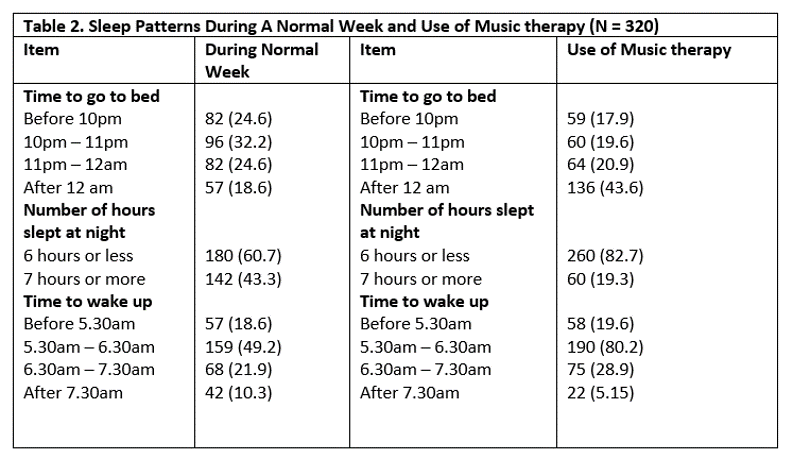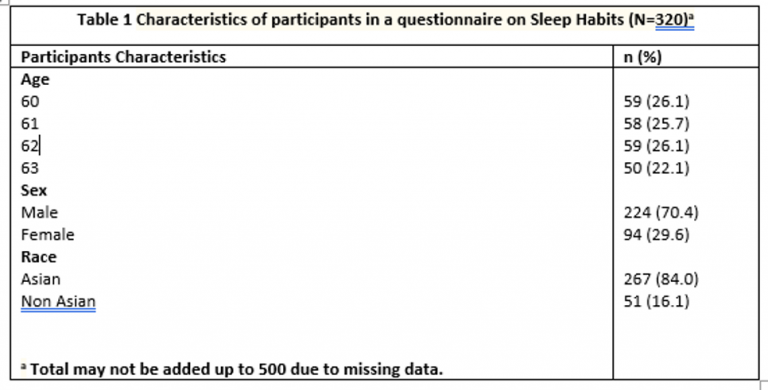Sleep Quality and Music Therapy
2020.12.9
Rachel Isabel Trent
Sleep is crucial for wellbeing and human health


BACKGROUND
The prevalence of poor sleep quality among older adults in different countries has been investigated by epidemiological studies over the past decade. Demonstrated also in South Korea where the prevalence of quality of sleep being poor in older adults in Japan at 37.3 percent, but the corresponding figure in Korea was 64.3 percent (Park, J. H., 2013).
METHODS
Collected online questionnaires from 500 people between 60-63 in South Korea. Tested with questionnaires that were made up of 3 parts: subject characteristics, sleep patterns during a normal week and occurrence of sleepiness in day.
RESULTS


DISCUSSION
It combines mind-body therapy as an intervention technique that influences thinking practices so that it affects physical and psychological conditions without use of pharmaceutical drugs. It is easy to apply, practical and inexpensive. It has no side effects. Music resulted in significantly better sleep quality such as: better perceived sleep quality, longer sleep duration, greater sleep efficiency, shorter sleep latency, less sleep disturbance and less daytime
CONCLUSION
Music has a soothing effect on our emotional brain, relieving anxiety and stress. It can trigger shifts in the body that in different aspects mirror a state of sleep such as slower breathing, heart rate and reduction in blood pressure. These are changes in the body that make it possible to fall asleep and remain asleep.
METHODS






